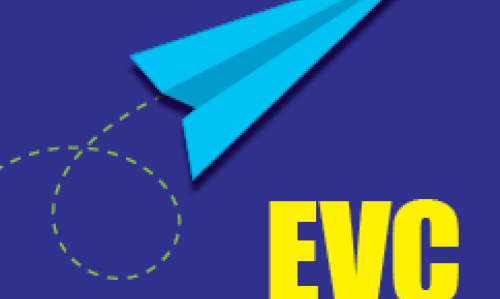NYU Law’s EVC Program showcases alumni-run start-ups

On October 14, NYU Law’s Entrepreneurship & Venture Capital (EVC) Program hosted its third annual showcase of alumni who have founded companies. The speakers—who have brought to market products that range from skincare to artificial intelligence-powered legal discovery software—shared stories of entrepreneurship and talked about how attending the Law School has shaped their careers.
In opening remarks, EVC director Emily Wazlak emphasized that the program is designed to broaden what a legal career can look like and to support “students and alumni who are thinking of different pathways after law school,” including venture capital and entrepreneurship. Opening opportunities to pitch to and partner with entrepreneurial leaders, the EVC program has become “a pivotal force in engaging and empowering our students and alumni by expanding access to knowledge, resources and networks that many students would not otherwise have,” Wazlak said.
Giving the keynote address, Alex Elias ’12, founder and CEO of Qloo, an artificial intelligence platform that predicts consumer tastes, recounted how he started his company as a 3L. His first funding connection, he said, came through an email to former NYU Law trustee Robert Kindler ’80, then vice chairman of Morgan Stanley. Elias urged entrepreneurially-minded law students to lean into their niche expertise.
“One of my favorite [Law School] courses, which was kind of a surprise to me, was internet contracts and studying with [Boxer Family Professor of Law] Florencia Marotta-Wurgler,” he said. “And a lot of it was kind of this nerdy deep dive into internet contracts and empirical studies on the efficacy of click wrap agreements and things like that. And I found myself oddly drawn to it, and it laid a foundation for thinking about Qloo and consenting to data and how the provenance of data matters and privacy matters. And so that ultimately became an asymmetric advantage, because it was something that we were fairly dogmatic about early on in the founding of the company.”
Attendees heard about the experiences of four other Law School alumni who were inspired to launch businesses after discovering problems and developing solutions.
- Esther Chiang ’09 was practicing law, advising on private fund formation and management, when she began to try to automate some of her work. The result was AI software SmartEsq, aimed at streamlining the legal workflows for private fund formation. (Chiang was represented at the event by her cofounder, Kristin Ghandi.)
- The founding of skin care brand Tagua began with a job offer. Gabe Turner ’15 was asked to serve as general counsel for a company that sourced skin care ingredients. “They found out that I sold a start-up in 2020, and they said, ‘Well, why don't you just make a product from our from our stuff?’” Turner recounted. He initially declined, but after speaking with his wife and family and hearing about what they needed in skin care, he realized that this might be an interesting opportunity.
- Joshua Karetny ’05, founder and CEO of PlumCheck, said that his company grew out of his dating experiences during the COVID-19 pandemic. PlumbCheck’s platform connects to thousands of health systems, translates medical records into simple statuses—for example, “vaccinated for the flu in September”—and delivers them to customer platforms. “We empower people to make use of their own personal health data,” Karetny said. He credited NYU for key connections in his start-up development journey.
- Ariel Desche ’19, founder and CEO of TrialKit, closed the founder presentations with a story from his time as a public defender. He recounted being assigned a case with “over a million pages of discovery…over a terabyte and a half of digital evidence” while he was juggling dozens of other cases. His innocent client, he said, ultimately received a lengthy sentence. “The one reason we weren’t able to give him a better defense,” he said, “was that we didn’t have the resources to go through that quantity of discovery.” TrialKit uses AI to gather facts from different kinds of discovery materials like digitized evidence. Desche called dramatic increases in the volume of discovery “an absolute crisis,” and said that TrialKit offers a path to “practice law in a different way.”
The evening concluded with remarks from NYU Law trustee and EVC advisory board member Bob Gold ’84, who outlined the program’s broader vision for students and alumni. He described EVC as “rather than being about teaching… [it’s] about doing.” Gold talked about his own path from traditional legal roles to founding a private equity fund and later investing in technology, media, and even an English football club. “New York City is the world’s great city,” he said, and NYU Law should have “a leadership role in the whole innovation economy.”



